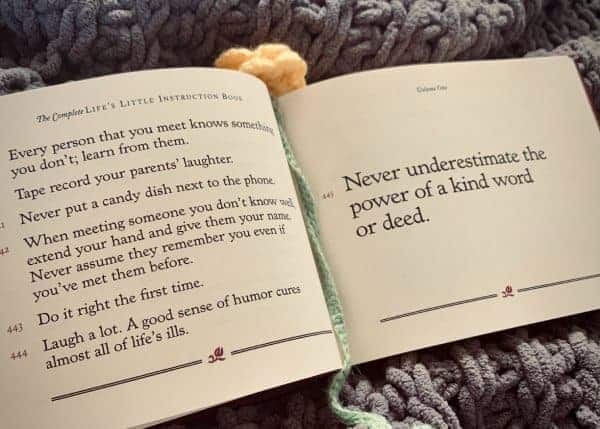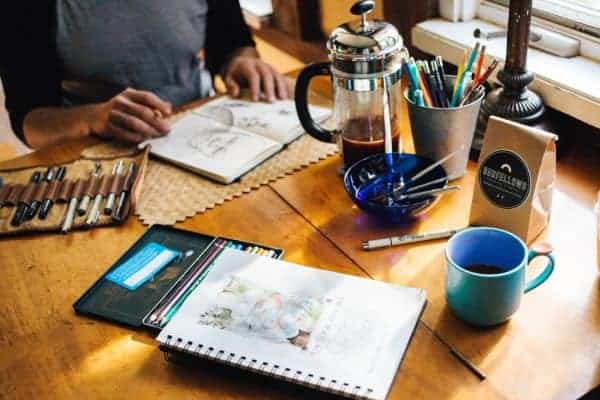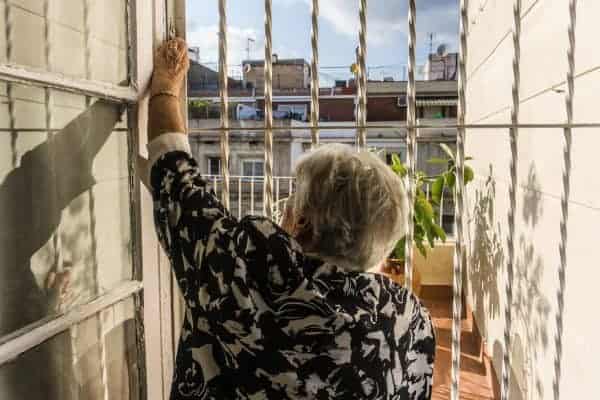Please view our updated COVID-19 guidelines and visiting procedures →.

For millions of people around the world a pandemic is a time of high anxiety and uncertainty, with reports indicating that stress levels of people isolated in their homes are higher than ever.
While perhaps more widespread now, this is not, however, a new phenomenon relating only to a pandemic.
For a person living with a life-shortening illness and receiving care at home, high anxiety and uncertainty, fear and exhaustion, are often already familiar burdens – not only for them but also for their family caregivers.
Each of us copes with tension, fear, and worry in different ways, and how your stress manifests itself physically, mentally and emotionally may dictate which strategies work best for you. Some find it easiest to unwind when their minds are engaged by something other than the source of their anxiety. Others feel more at peace when they’re getting things done, and some when they are doing nothing at all.
For many decades, the staff and volunteers of Connecticut Hospice https://www.hospice.com have observed how their patients and families cope best during these times, and have supported and empowered them to find their best strengths. There are almost as many strategies as there are individuals, but some common themes emerge which can be helpful to all of us, especially now.

If you are struggling with stress overload at home, consider some of the following strategies, which have proven effective for hospice and palliative care patients and families, individually and collectively, over many years.
Feeling overwhelmed can feel like being caught in a state of chaos, with no control over what happens. Empower yourself by putting some structure and routine into your life where you are able. Heighten your feeling of stability and control by setting the terms - block out time for certain tasks, choose a rhythm that works for you and your circumstances, repeat patterns that work.
A daily meditation coupled with yoga can help to center body and mind. Increased mental clarity can help to stabilize you. But you don’t have to practice formal meditation - simply concentrating your focus on one thing (a particular color, sound, word etc) can bring similar benefits.

If you have access to nature (even without being able to go out into the world at large), try focusing on transformation, growth, and rebirth by putting some energy into nurturing plant-life. Caring for living plants can give you deep satisfaction, and while ‘grounding’ yourself in this way, you have an opportunity to think about your worries more constructively. You may find peace and relaxation come more easily.
There is always someone somewhere who can and will help. It is not a weakness to need support. Very often others are grateful to have an opportunity to help you - it makes them feel good too.
https://www.hospice.com/pastoral-and-spiritual-care/
https://www.hospice.com/bereavement-program/
Gather as much real information as you can, without fixating on the source of your worries. Arming yourself with knowledge also empowers, and when you make decisions based on sound information, you are usually causing less additional stress down the road.

Keep things simple, do what you know you can and don’t feel guilt or anxiety if not perfect (see kindness to self!).
These don't only include structured games or traditional role-playing. Playful diversion can be healthy and relaxing (see kindness to self!)
When you think of an anxiety-provoking circumstance in your life, try to think of a positive aspect of it - (optimism!). Is there anything good that has come out of this?
Observe how your mind and body are handling stress.
Social interaction is vital to most human beings. Being a home-bound patient or caregiver can sometimes be lonely and isolating, but if you can share your feelings and experiences with others, even one other person, someone else is then helping to share your load (in a good way!). In-person conversations are usually most fulfilling, but if this is not possible, let technology be your friend. With so many options for communicating nowadays - phone, FaceTime, texting, messaging, Skype, social media such as FaceBook, Instagram, etc. on-line support groups and more – the rest of the world is not always far away. If you can, help a senior who may not have grown up using these media, to navigate them.

They often say that you cannot change circumstances or people outside yourself but you can learn to control your own responses and behaviors. This is easier said than done, of course. When you are exhausted, frightened, or angry this is especially hard. It takes discipline and energy that may be in short supply. One way to fuel up this positive energy is to perform an act of kindness (or think kindly and tolerantly of others) whenever you can. The rewards will last into your periods of lowest ebb. Don’t forget to be kind to yourself – jettison the idea that you must be perfect, treat yourself to a few minutes of time alone, pursue a favorite activity without guilt.

Experiencing pleasure in music lowers stress hormone levels, especially cortisol. Music can also cause activity in the nucleus accumbens and other reward areas of the brain that use the neurotransmitter dopamine, it can modulate activity in the amygdala, and it engages multiple brain regions involved in complex cognitive processing. These are all science-based ways of saying that music feels good, is relaxing and is often good for you.


Creativity is a life-force, and exploring your own can be exhilarating and rejuvenating, enlightening and empowering. Explore your imagination and creativity as inspiration and materials allow. Diverting your energy and focus from other worries in this way can be tremendously relaxing. Conversely, using an expressive medium to deliberately delve into the source of your stress can be profoundly illuminating. Processing and rendering something in your own way may render it no longer as threatening. Not only might you see something in a completely different way, but you might also see a new solution to a problem. https://www.hospice.com/arts-program/

Laughter is a well-known stress-reliever. Whatever makes you laugh, try to do some of it.

Get as much as you can, as regularly as you can, forsaking extra stimuli right before settling down. Keep your room dark and quiet through the night. Even short naps during the day can be restorative.

The garden’s grillwork gate
opens with the ease of a page
in a much thumbed book,
and once inside, our eyes
have no need to dwell on objects
already fixed and exact in memory.
Here habits and minds
and the private language
all families invent
are everyday things to me.
What necessity is there to speak
or pretend to be someone else?
The whole house knows me,
they’re aware of my worries and weakness.
This is the best that can happen –
what Heaven perhaps will grant us:
not to be wondered at or required to succeed
but simply to be let in
as part of an undeniable reality,
like stones of the road, like trees.
(translated from the Spanish
by Norman Thomas di Giovanni)



As a not-for-profit, we depend on generous donors to help us provide customized services and therapies that aren’t completely covered by Medicaid, Medicare, or private insurance.
Please make a gift to help us sustain the highest standard of care.
Admissions may be scheduled seven days a week.
Call our Centralized Intake Department: (203) 315-7540.